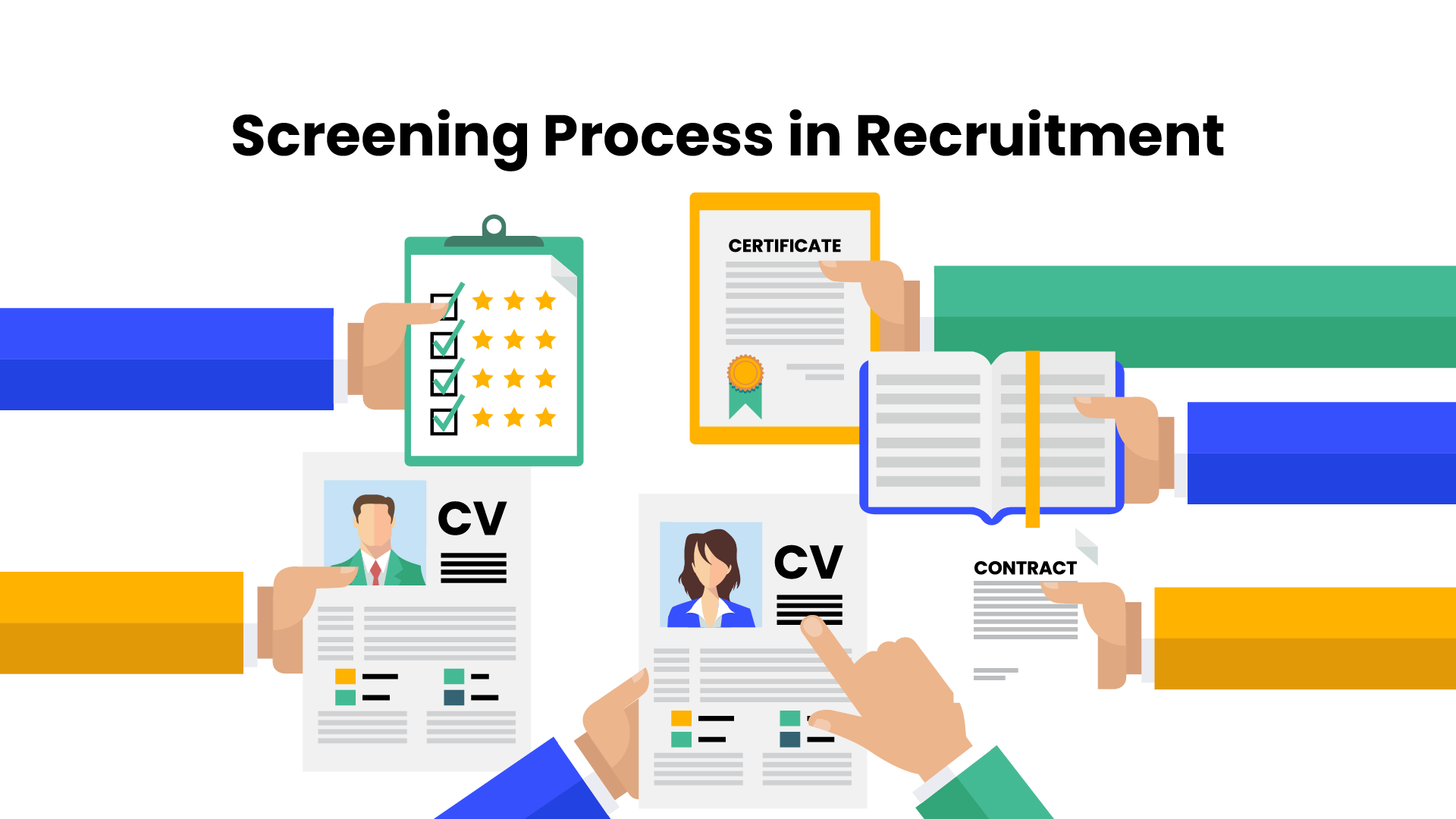
Learn the five most common screening methods, why they matter, and how the right tools help teams hire faster with clearer decisions.

Recruiters spend a surprising amount of time on work that should be simple. About 35% of a recruiter’s time goes into scheduling interviews, and more than half of companies even assign someone to manage this task full-time. In fact, 67% of recruiters say setting up one interview can take 30 minutes to 2 hours.
These delays stretch the hiring cycle and frustrate candidates who expect a smooth process. Missed interviews and last-minute changes make it even harder to secure talent in such a tough hiring market.
Interview scheduling software helps solve this. It automates invites, syncs calendars, and sends reminders so recruiters can focus on hiring decisions instead of logistics.
In this article, we’ll look at the 8 best interview scheduling software in Singapore, and how each tool can help you hire faster with less effort.
A range of tools are built specifically to take over scheduling, reminders, and coordination so recruiters can focus on evaluating candidates. Some platforms bundle scheduling inside a full hiring suite, while others keep it as a standalone feature that plugs into your ATS or calendar.
To help you choose what fits your team best, here’s a side-by-side look at the 8 best interview scheduling software in Singapore, their key features, and how they handle scheduling.
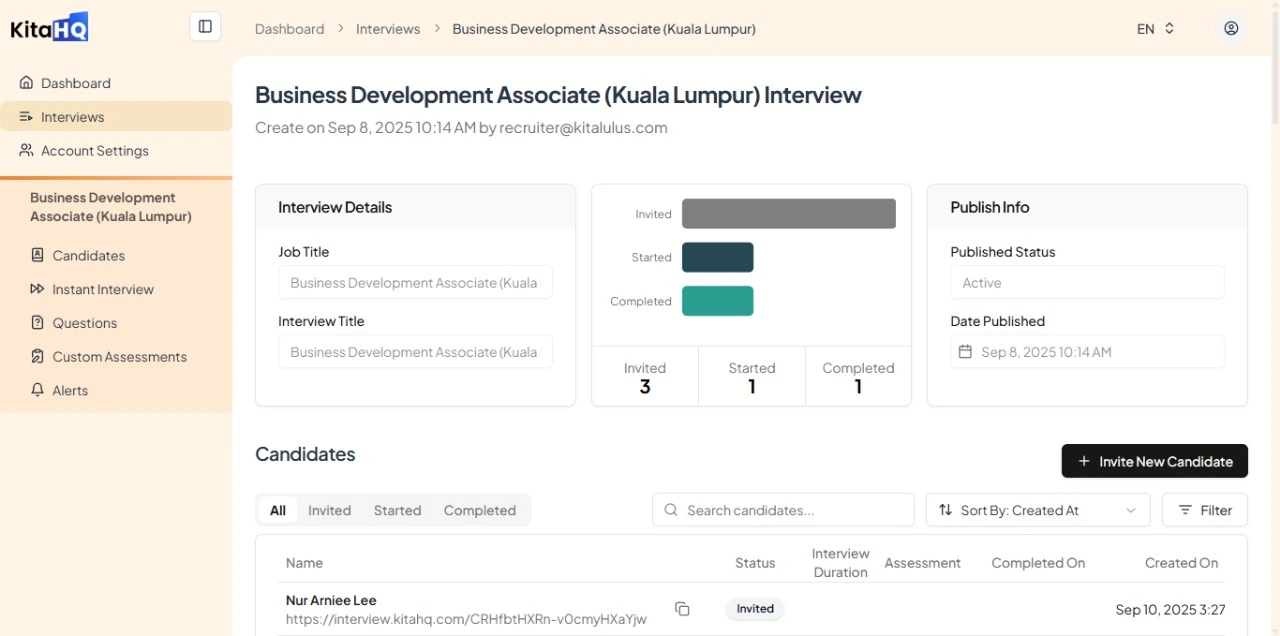
Overview:
KitaHQ is more than just an interview scheduling software, it’s integrated with AI video interviews to streamline the earliest stages of hiring. Instead of recruiters spending hours on repetitive tasks, KitaHQ automates first-round interviews and allows candidates to complete them anytime without manual scheduling.
By removing the burden of scheduling and early screening, KitaHQ lets recruiters focus on what matters most. They can use their judgment on final candidates and make stronger choices with confidence. This balance between automation and human review makes hiring more practical for both teams and applicants.
Key features:
Strength:
Limitation: The interview scheduling function is built into the complete KitaHQ platform, not offered independently.
Best for: companies of any size, from small teams to large enterprises. It is suitable for startups, growing businesses, and high-volume hiring environments where consistency and scheduling efficiency are important.
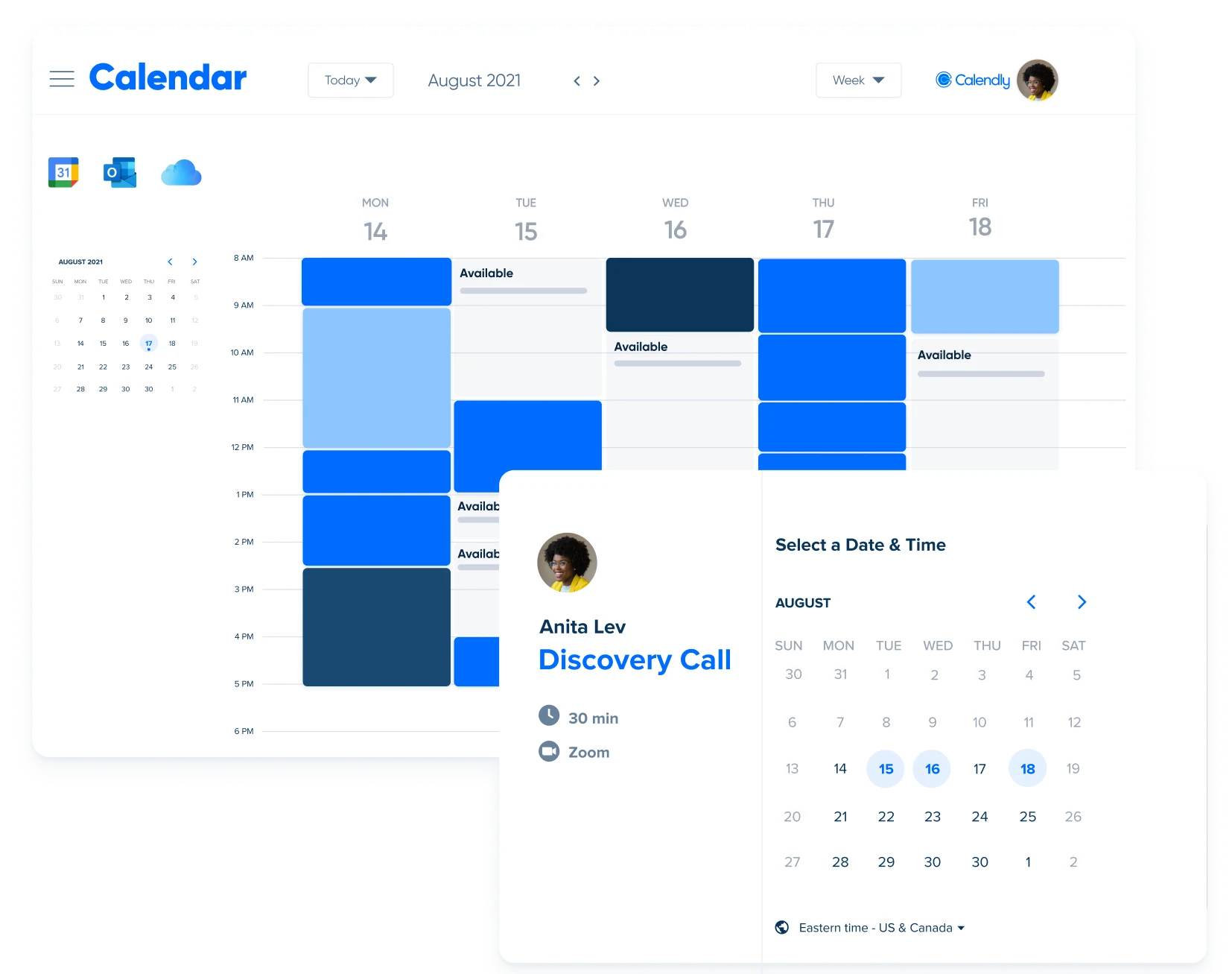
Overview:
Calendly makes it simple to arrange interviews by replacing email exchanges with a scheduling link. Candidates choose a time that works for them, and recruiters no longer handle constant back-and-forth.
It also helps reduce missed interviews by syncing with calendars. Recruiters see confirmed slots clearly, and candidates get straightforward confirmations. This gives both sides a smoother hiring flow.
Key features:
Strength: Shortens the recruiting cycle by about 26% and saves time when booking interviews.
Limitation: Few reviewers find certain settings confusing at first, especially availability options and meeting types, so getting it all set up takes more effort.
Best for: individuals, small teams, and startups, while also scaling to mid-market and enterprise needs like advanced integrations and high-volume scheduling.
See also: 7 Best Video Interview Software for Remote Hiring in Singapore
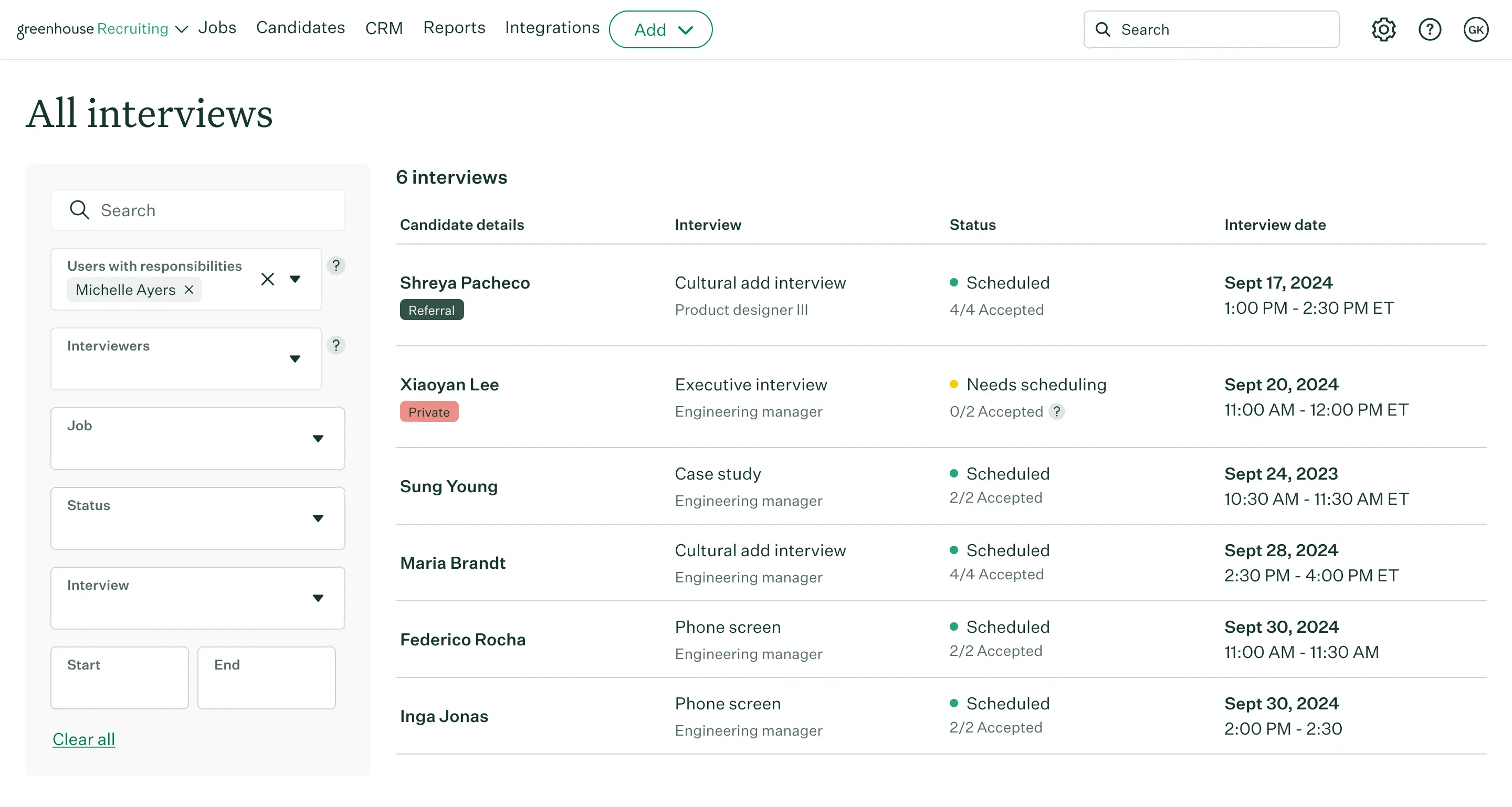
Overview:
Greenhouse is a recruiting platform that organizes the hiring process into clear stages. Recruiters can schedule interviews directly from their calendars while tracking candidate progress in one place.
Its scheduling feature connects with interview plans so recruiters and interviewers stay aligned. This gives hiring teams a simple way to manage interviews and follow up without losing track of details.
Key features:
Strength: Structured hiring processes ensure candidates are evaluated with consistency and clear criteria.
Limitation: Few users note that integrations with certain HRIS and back-end systems are difficult or limited.
Best for: mid-sized to large companies needing structured workflows, strong reporting, and multi-stakeholder recruiting.
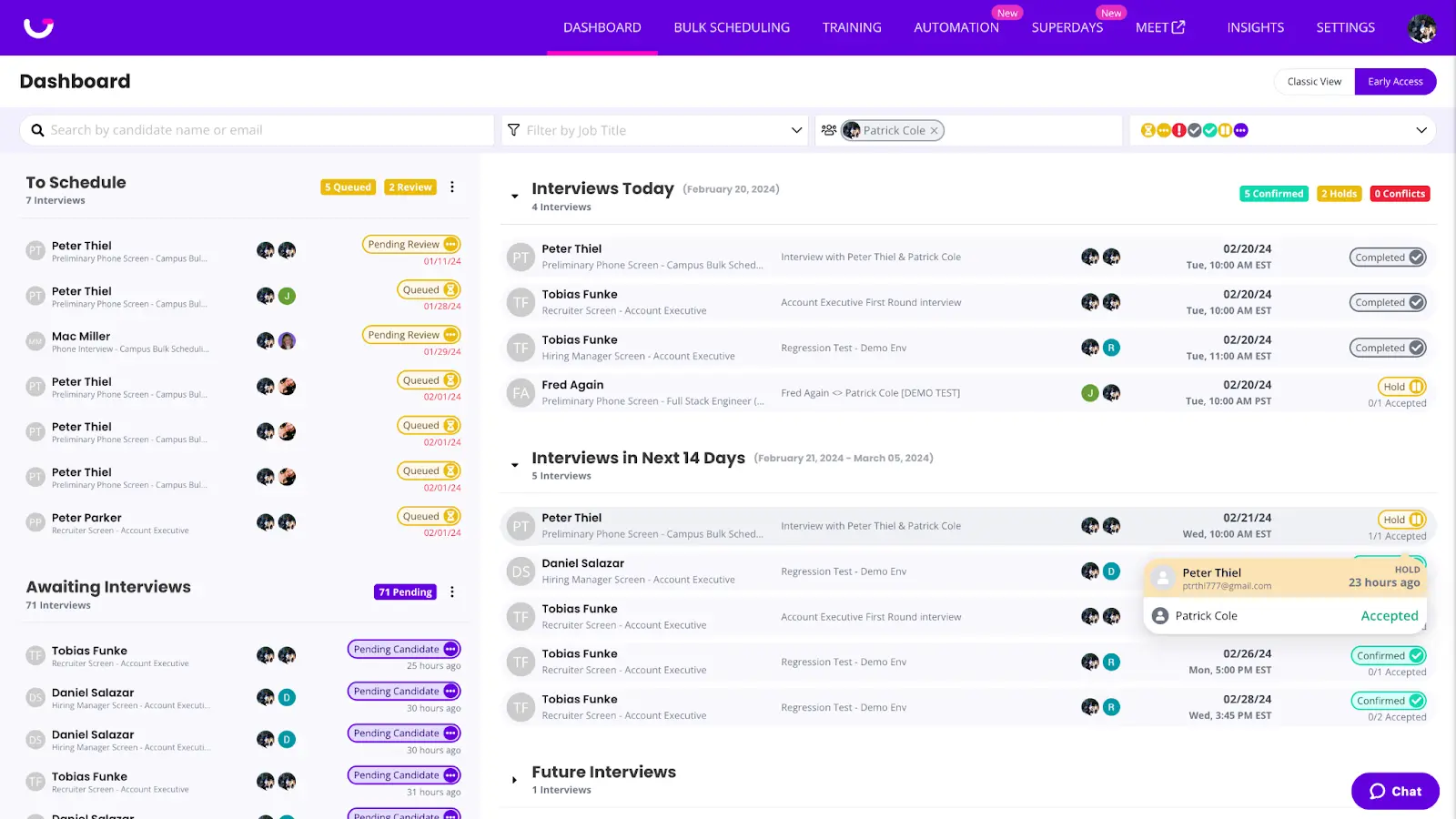
Overview:
GoodTime is a hiring platform built to remove friction in interview scheduling. It automates setting up and rescheduling interviews while giving visibility into what stage each interview is at.
Recruiters using GoodTime get access to dashboards that show the status of all interviews and options when conflicts occur. This helps avoid manual coordination and keeps both candidates and hiring teams informed.
Key features:
Strength: Automates up to 90% of interview management tasks, cutting down the time recruiters spend on coordination.
Limitation: Feedback indicates that sometimes available time slots are missing even though calendars show availability.
Best for: mid-size to large companies with high-volume hiring, complex interviews, and deep ATS integrations.

Overview:
Cronofy is a scheduling platform that helps teams manage interviews and meetings quickly. The scheduling component works through calendar syncing and self-booking links so that users avoid email back-and-forth.
With Cronofy recruiters and hiring teams gain visibility into scheduled interviews and see status updates without confusion. The tool brings clarity to when interviews are booked or need changes so teams can keep hiring moving forward.
Key features:
Strength: Cuts down time-to-schedule drastically (for example, from days to a median of 90 minutes in customer cases)
Limitation: Few users report that there is a steep learning curve because documentation is not always clear.
Best for: organizations needing integrations and more advanced scheduling.
See also: 13 AI-Powered Talent Acquisition Software Every Recruiter Should Know
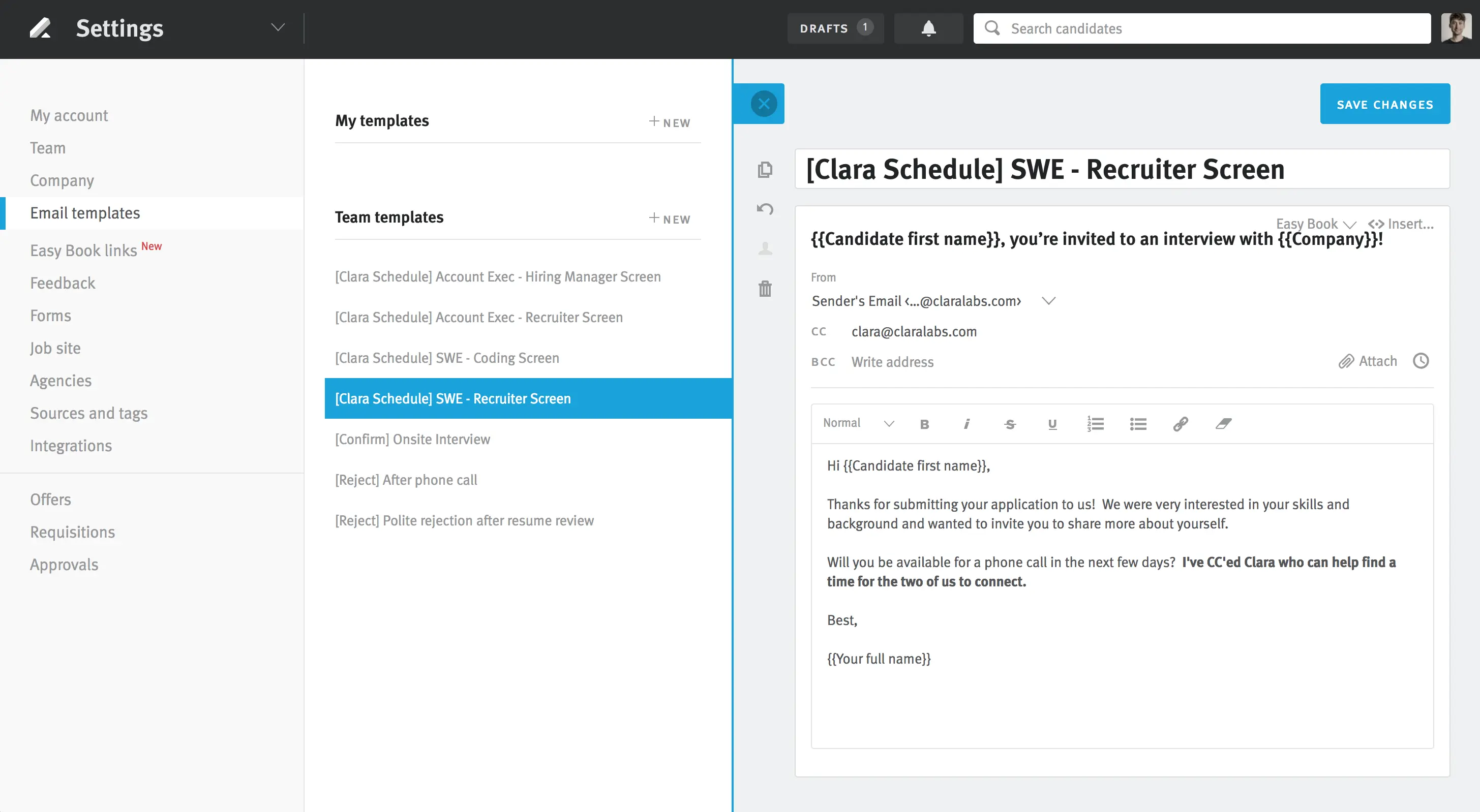
Overview:
Clara is a tool that manages meeting arrangements by simply CC’ing it in an email, which means adding its address in the “CC” field of your message. Once included, Clara steps in to find available times and sends out the calendar invites.
Interview scheduling is part of its core workflow and it handles follow ups so meetings stay confirmed without extra effort. Recruiters and teams benefit from reduced email load and more predictable scheduling.
Key features:
Strength: Clara manages follow-ups automatically, ensuring scheduling threads don’t stall when someone doesn’t respond.
Limitation: Some users report that Clara has limited advanced scheduling features when you need more than basic setups.
Best for: individuals, startups, and small teams that rely on email scheduling.
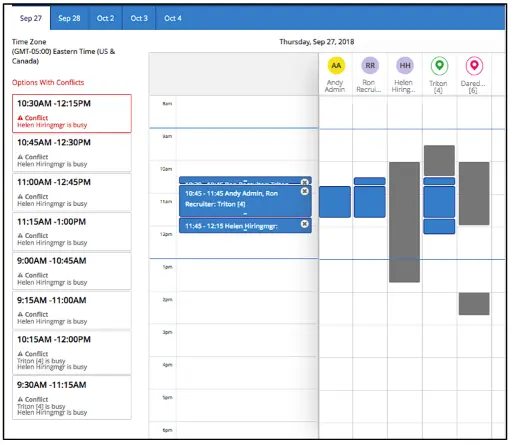
Overview:
Jobvite is a full recruiting platform that helps companies manage hiring from application through interview. It brings interview scheduling inside the hiring workflow by letting candidates pick slots based on interviewer availability and automatically matching those slots.
Recruiters gain clarity about candidate status and scheduling without needing extra tools. The platform helps manage candidate flow, internal communication, and keeps everyone aligned during the interview process.
Key features:
Strength: Supports configurable workflows and “Interview Types” so hiring teams can define steps, set deadlines, and manage interview stages in one system.
Limitation: Feedback indicates that workflow complexity and many setup steps slow down onboarding and reduce early productivity.
Best for: mid-sized to large companies with high-volume hiring and a need for a full talent acquisition suite.
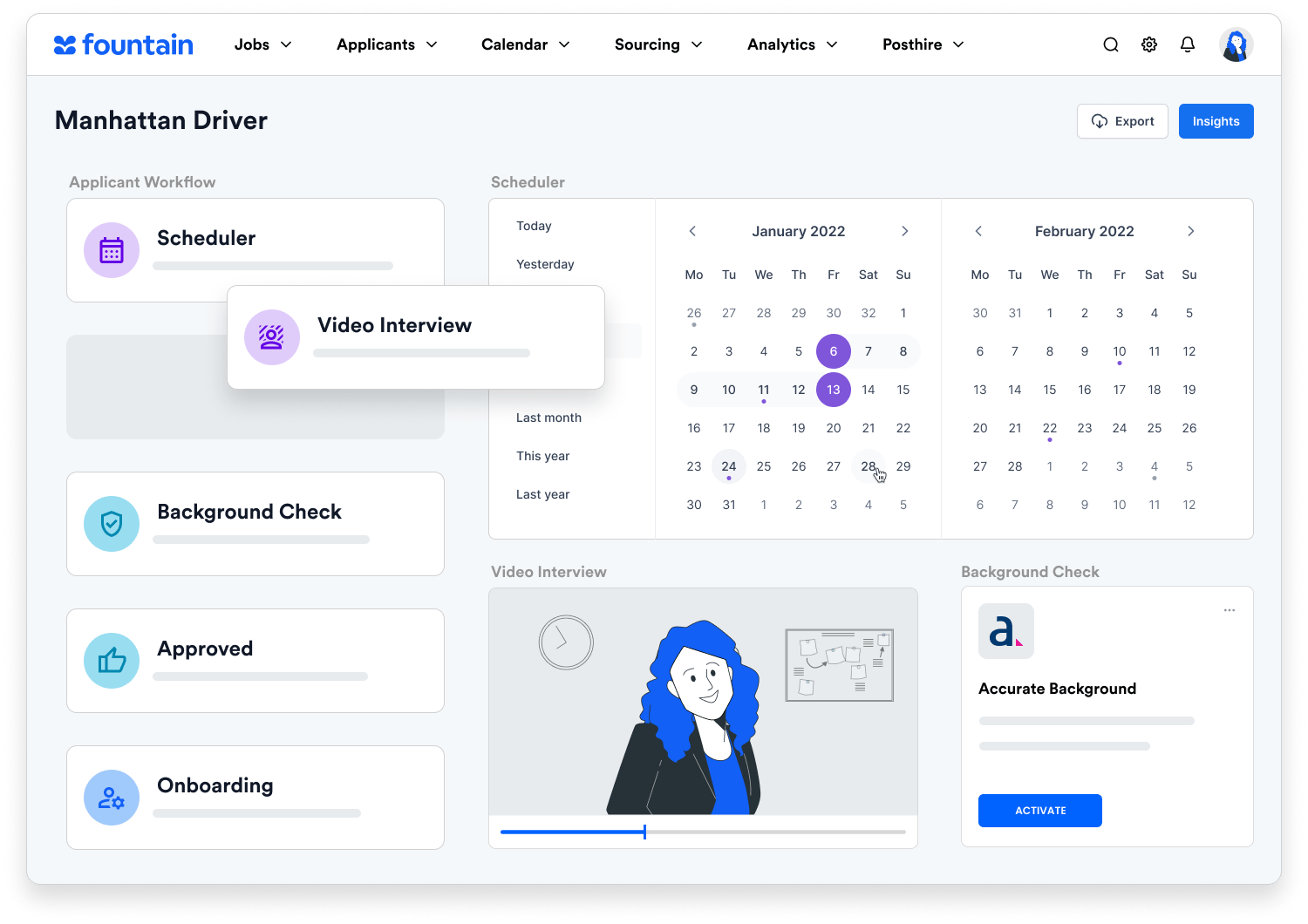
Overview:
Fountain is a recruiting platform built for companies that hire large numbers of hourly or frontline workers. It automates many parts of the hiring process including interview scheduling so that recruiters spend less time on coordination.
Recruiters using Fountain gain better tracking of each candidate’s progress. They get dashboards that show where an applicant is in the hiring funnel and reminders that keep the process moving forward.
Key features:
Strength:
Limitation:
Less optimal for recruiting executive or specialist positions with different needs.
Best for: high-volume frontline hiring in retail, logistics, F&B, hospitality, and healthcare.
See also: Top 5 Candidate Screening Software to Streamline Healthcare Hiring
Choosing the right tool depends on how your company works. The best choice is not always the one with the most features but the one that matches your team’s size, hiring needs, and systems.
Smaller teams often only need a simple tool that lets candidates pick times without back-and-forth emails. That kind of setup works when you have a handful of roles to fill and only a few interviewers.
Larger teams face more moving parts. They need tools that can handle panel interviews, recurring schedules, and a high number of candidates without slowing down. A system that grows with you avoids the pain of switching later.
Budget is always part of the decision. Some tools offer free or low-cost plans that work well for small teams. Others use per-candidate pricing, which makes costs predictable and directly tied to actual hiring volume.
Bigger companies often go for enterprise packages that include advanced features and priority support. The higher price can make sense if it saves time and helps recruiters move faster.
The type of roles you hire changes what you need from a tool. High-volume hiring benefits from self-scheduling links, bulk reminders, and automation that removes manual steps.
Executive or specialist roles often need more structure. Tools that support panels, multi-stage workflows, and scorecards help ensure candidates are evaluated fairly and consistently.
A scheduling tool should connect with what you already use. When it syncs with your ATS and HR systems, recruiters can manage calendars, candidate data, and invites without extra steps.
Poor integration leads to duplication and mistakes. A tool that works smoothly with your setup keeps everything in one place and makes the process easier for recruiters and candidates.
The right interview scheduling software can speed up hiring and save recruiters countless hours. Whether it’s a simple self-scheduling tool or a bundled platform with AI-driven interviews, the goal is the same: reduce delays, cut down on no-shows, and give candidates a smoother experience.
If you’re looking for the fastest way to combine scheduling, AI-generated questions, video interviews, and scoring in one affordable package, KitaHQ delivers it all for just $1 per candidate.
Book a demo with KitaHQ today and see how much time your team can save.